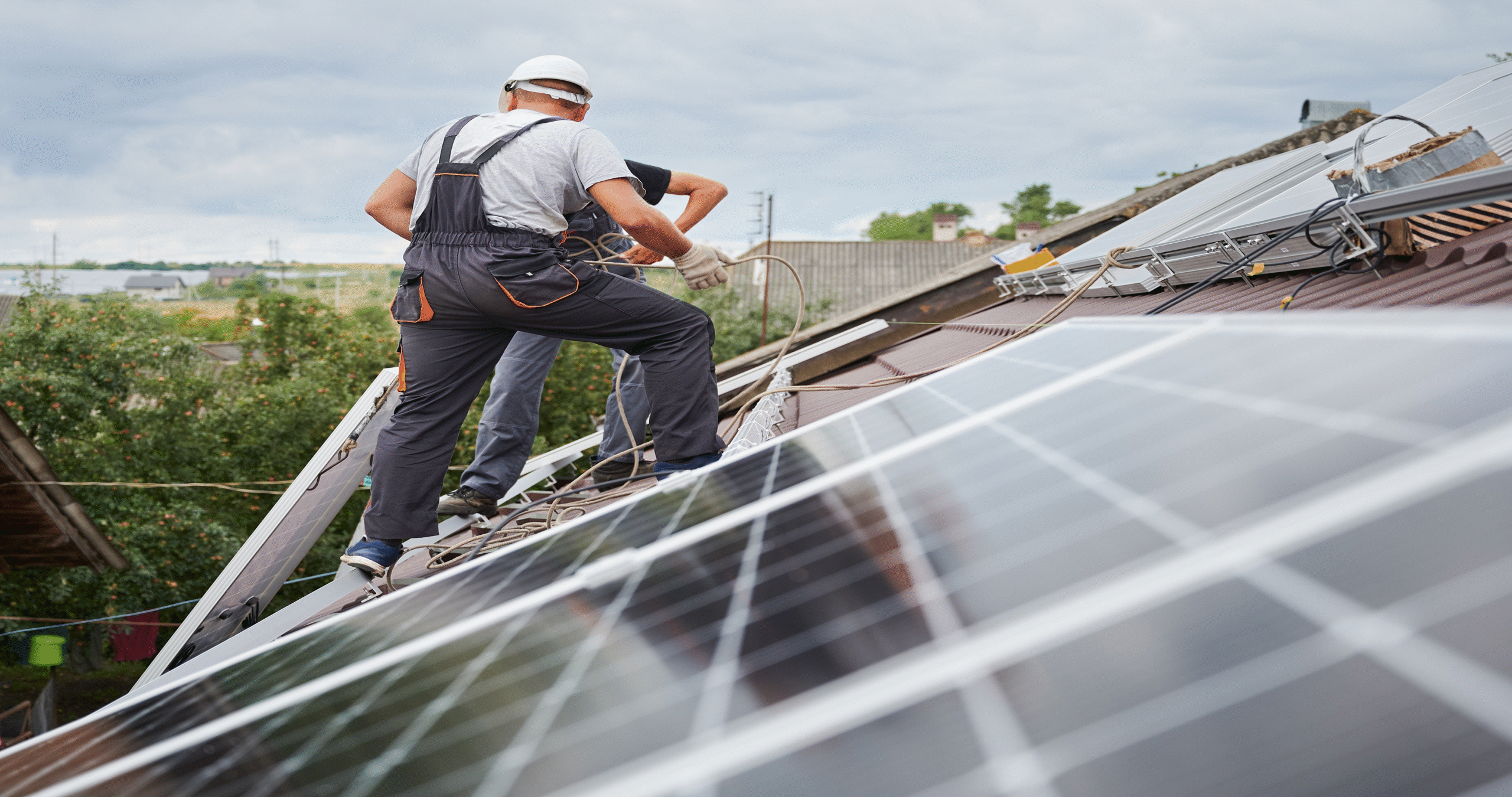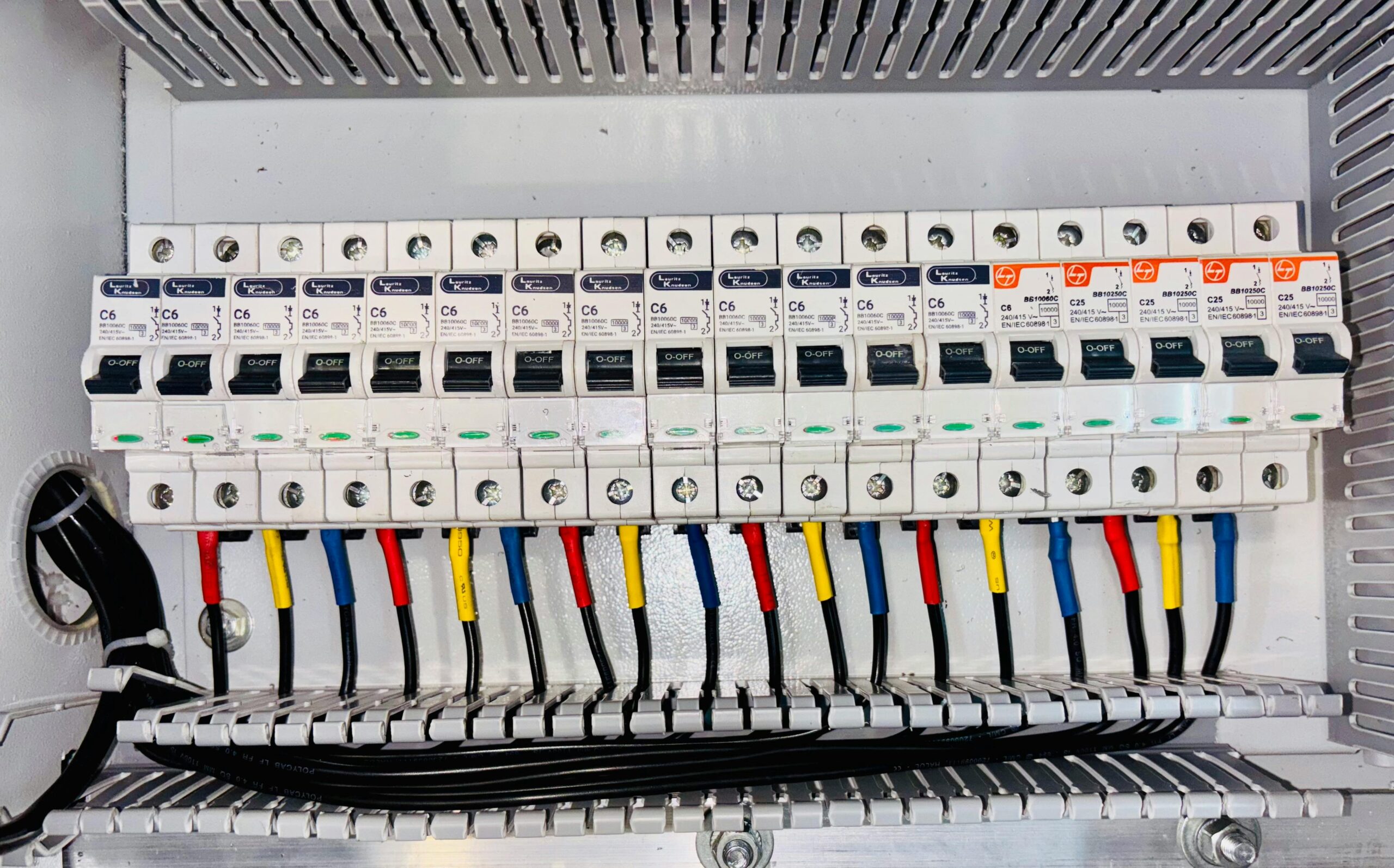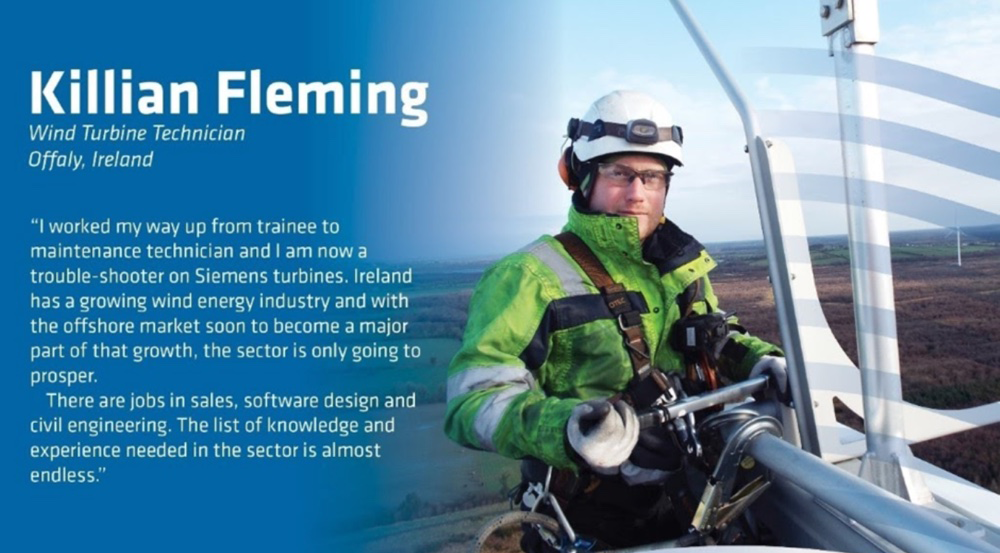
Note: Grant funding comes from Skillnet Ireland through the Irish National Training fund, and, as a result, is ONLY available to residents of the Republic of Ireland who work as a sole trader, or for a private or semi-state commercial company registered in ROI. If you are not eligible for the discount, you will still have the option to enrol by paying the full course fee. Please read Eligibility Criteria.
Please book this if you plan on doing both Parts of the training. If you only want to do one part, please book Part 1 here and Part 2 here.
Both parts, the QQI Level 6 Electrical Installation and Commissioning of Micro Generators Award (6N0307) together will qualify you to register with SEAI as an approved contractor for Solar PV grants. This course also meet the Dept of Agriculture requirement for contractors to register on TAMS Solar PV installers register.
Micro Solar Photovoltaic Systems Implementation
The purpose of this award is to equip you with the relevant knowledge, skill and competence to implement micro scale solar photo-voltaic (p-v) projects, up to 11 kilowatt, according to the applicable standards, legislation, guidelines, and manufacturer’s specifications, whilst working autonomously.
Part 1: Minimum Level 5 Certificate – relevant life or work experience may also be accepted.
Part 2: Minimum Level 6 Electrical Trade Certificate.
Part 1:
- Describe the main p-v cell technologies including the characteristics, configurations, and components of solar p-v systems.
- Describe factors affecting solar p-v output to include tilt, orientation, over shading and p-v module mismatch.
- Describe the relationship between rated output at standard test conditions and actual output in use.
- Summarise the planning requirements for solar p-v installations including any possible exemptions.
- Summarise relevant legislation, standards and regulation to include CE marking and New Approach 2 directives, product testing and certification standards and building regulations.
- Describe maintenance requirements for solar p-v systems to include cleaning, checking torque of fixing bolts and visual inspection of array integrity and electrical connections.
- Propose an appropriate mounting technique based on aerodynamic and static load considerations.
- Describe the potential hazards and mitigating action associated with solar p-v operation to include electrical hazards, “always live” systems, labelling and signage requirements and fixing of panels.
- Describe the relevant health and safety requirements for installation to include working at height, securing ladders, safety requirements for scaffolds, guard rails and personal safety equipment.
- Describe the recommended installation sequence for solar p-v systems identifying relevant standards and guidelines applicable to each phase of installation.
- Outline the main considerations for roof-mounted solar p-v systems including roof types, construction, loading, integrity and weather proofing.
- Assess roof loading and load bearing capacity and recommend suitable mounting and weather sealing techniques.
- Use the recommended tools for deploying all required solar p-v system components in accordance with manufacturer’s specification.
- Carry out a feasibility study for solar p-v system to include a resource assessment and economic evaluation.
- Generate a design layout for a solar p-v system to include a specification of array location, mounting techniques, cable runs and inverter location.
- Assess the conformance of a solar p-v system in accordance with standards for module fixings, fixing of the array, weather proofing, and integrity of the array.
- Test a solar p-v installation to include normal shutdown, emergency shutdown, and power control against solar intensity.
Part 2:
- Describe key characteristics of micro-generation systems including the major components and system layout of wind, solar p-v (photo-voltaic), hydro- and micro-CHP (combined heat and power) systems
- Identify the characteristics of generator types to include permanent magnet, induction, synchronous and asynchronous
- Describe solar p-v module types and arrays to include current-voltage characteristics, open circuit voltage, short circuit current, maximum power current and voltage
- Describe wind turbine types to include variable voltage and frequency output
- Describe output controls on wind generator to include dump loads and electrical braking
- Summarise the requirements for electrical works with respect to applicable regulations, certification, and national rules for electrical installation
- Summarise relevant product requirements including those relating to European conformity CE marking, and testing and certification standards
- Identify hazards associated with micro-generation installations to include “always live” systems, leakage current detection, earthing and lightning protection systems and isolation devices, proposing suitable mitigation measures
- Describe network connection requirements including the network connection application process
- Summarise appropriate signage and labeling requirements as per the National Rules for Electrical Installations to include identification of cable locations and “always live” systems.
- Justify the selection of a suitable battery system based on sizing and safety requirements as per IS EN 50272-2
- Calculate recommended minimum capacities for electrical components including voltage and current ratings for direct current plugs, connectors and switches, and cable capacity based on size
- Program inverters with generator power curves in accordance with manufacturer’s specifications and set-up instructions
- Commission a solar p-v system completing all required electrical testing
- Commission a simulated rotating generator system completing all required electrical testing
- Identify faults in solar p-v and rotating generator systems using test and measurement equipment.
Part 1:
- Assignment: 40%
- Examination – Theory: 40%
- Skills Demonstration: 20%
Part 2:
- Examination – Theory: 70%
- Skills Demonstration: 30%
Learner will receive QQI level 6 minor awards in the following: Micro Solar Photovoltaic Systems Implementation 6N0306 and QQI level 6 minor awards in the following: Electrical Installation and Commissioning of Micro Generators 6N0307. On successfully completion of both awards (Part 1 & Part 2) learners meet the qualifications requirements for SEAI’s register for PV installers.
The course will cater for a variety of adult learners with a minimum Level 5 Certificate/ Ordinary Level Leaving Certificate standard of education. You should have previously have completed a relevant Level 5 award.
Learners who successfully achieve this award will be expected to perform “controlled works”, such as connecting generators to the national electricity network. To perform controlled works, they must be registered electrical contractors with RECI (Register of Electrical Contractors of Ireland).
Chevron College is Ireland’s largest renewable energy training provider and the 1st provider to be approved to deliver the new QQI level 6 Solar Photovoltaic installer training course. Our course trainer Toddy Byrne is one of the foremost experts on Solar Photovoltaic technology in Ireland today. His company Southern Wind and Solar has supplied and installed Solar PV systems nationwide to private and commercial customers along with public sector organisations. Toddy was a also a member of the standards development committee for the development of this QQI accredited course. Domestic Solar Photovoltaic systems can be financially attractive projects for many electricity consumers due to the systems ability to significantly reduce electricity costs, e.g. a typical domestic Solar PV system can produce 50% of the annual electricity consumption of an Irish home. Furthermore, any surplus electricity generated by the Solar PV system may be exported back to the Grid, thus creating an additional income stream for the consumer.
Therefore the Department of Energy sees PV systems as an essential part of Government energy policy. In order to optimise the full benefits that can be derived from a domestic Solar PV system, it is essential that the system is installed by a competent individual. Consequently, Chevron College delivers Solar PV training programmes which aim to impart learners with the appropriate knowledge and skills to competently install domestic Solar PV systems. These programmes examine both the Implementation of Micro Scale Solar PV Systems and the Electrical Installation and Commissioning of Microgenerators. These courses will be accredited by QQI. It is essential that candidates participating on the Electrical Installation and Commissioning of Microgenerators course will have obtained the appropriate qualifications related to electrical installation, knowledge of the IEE Wiring Regulations and inspection and testing.









